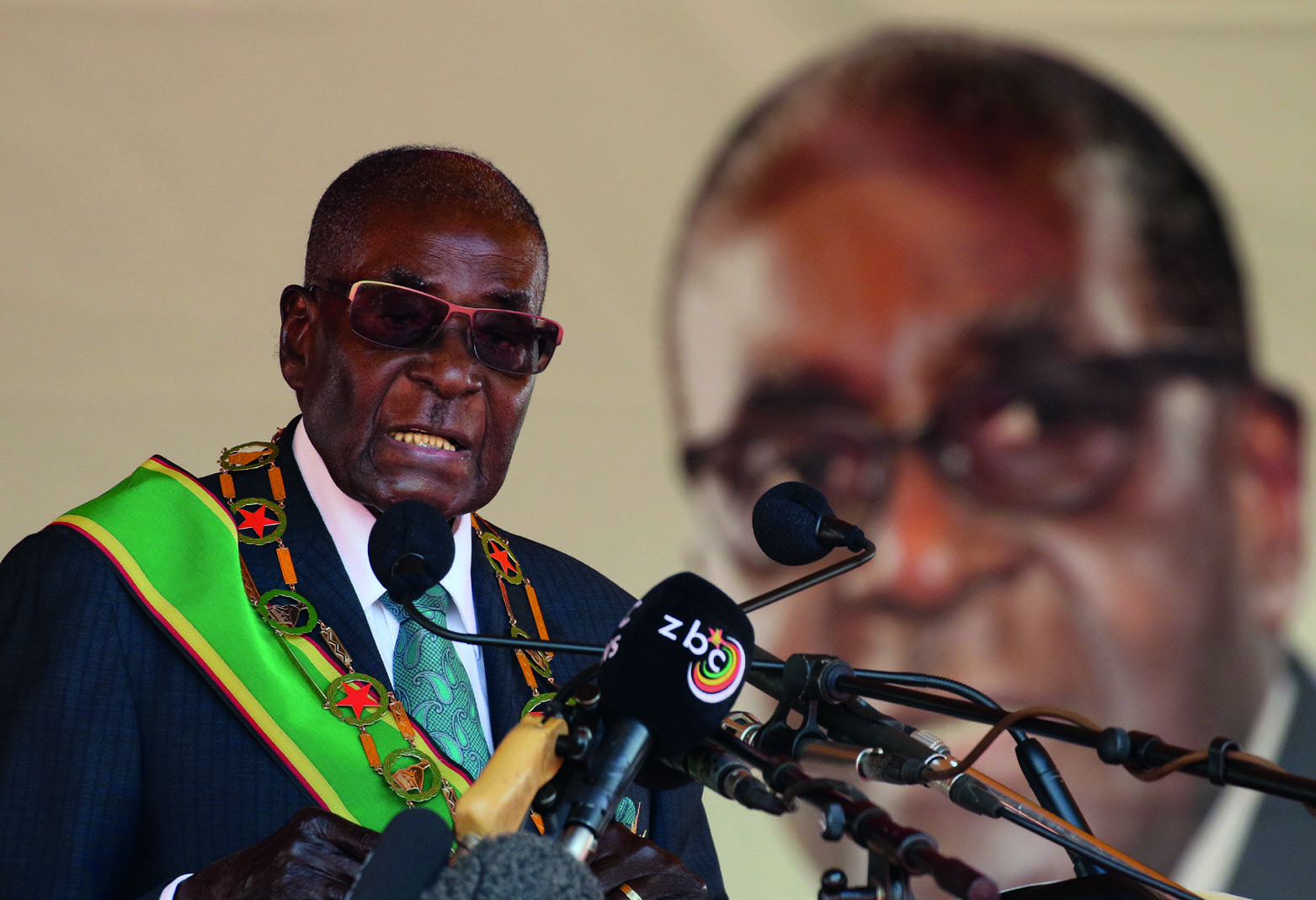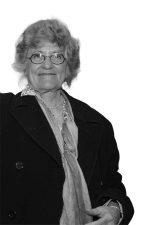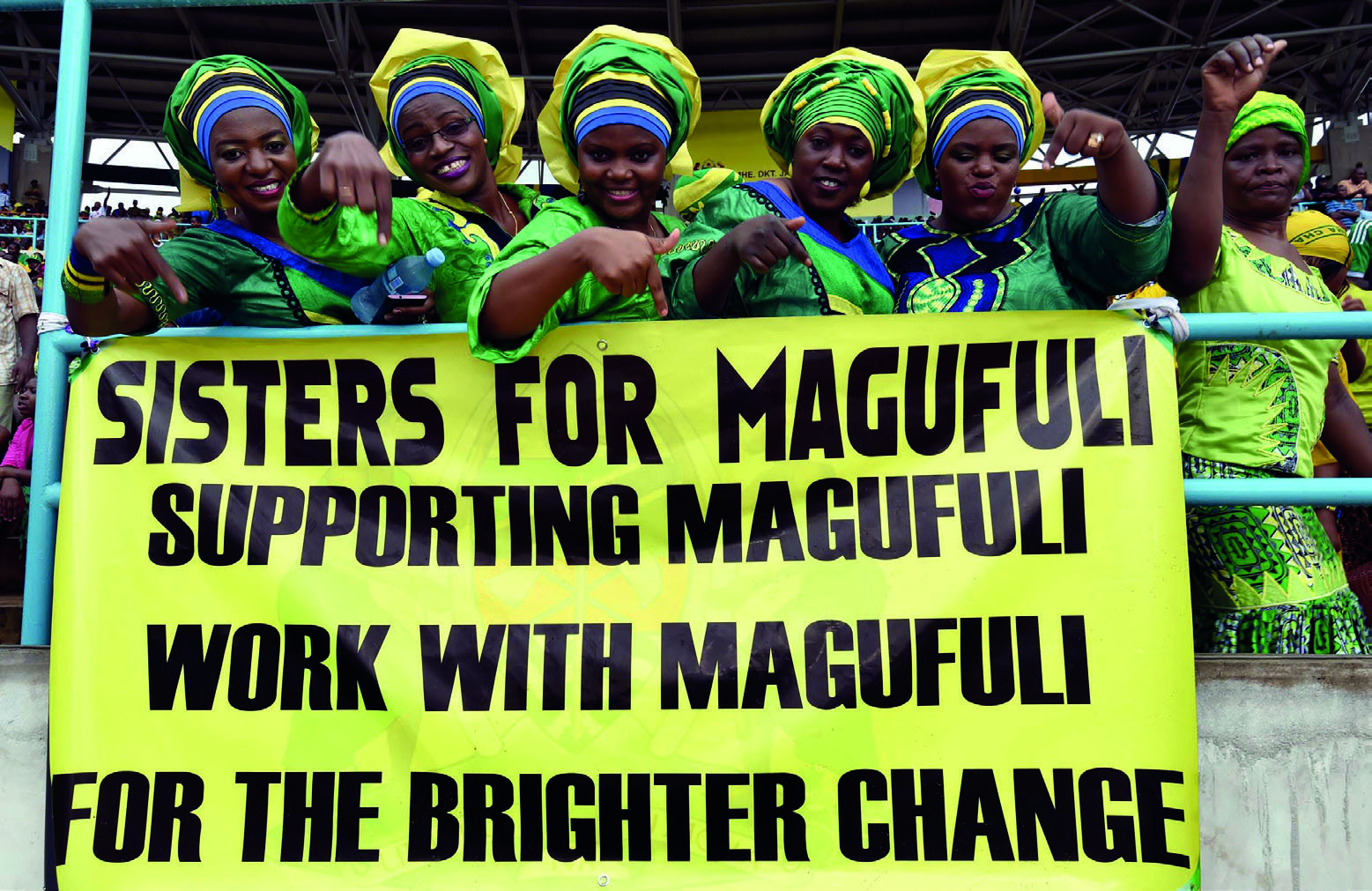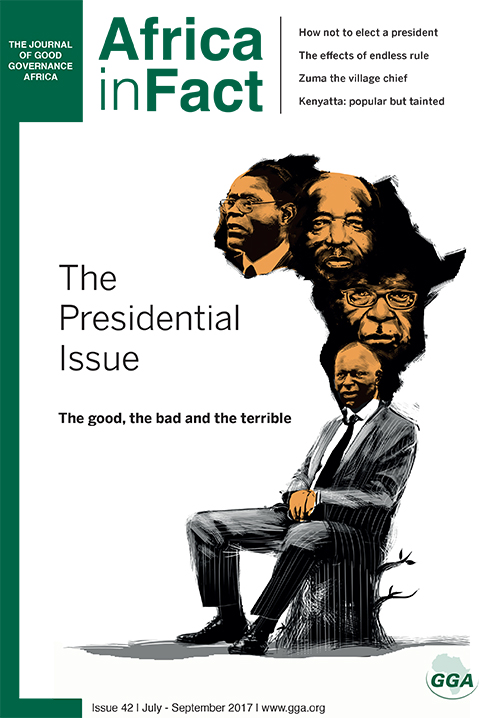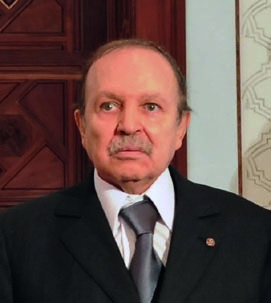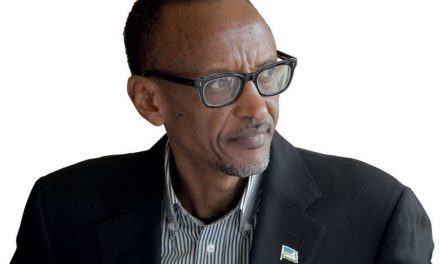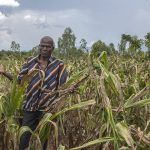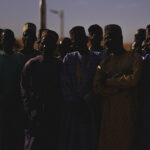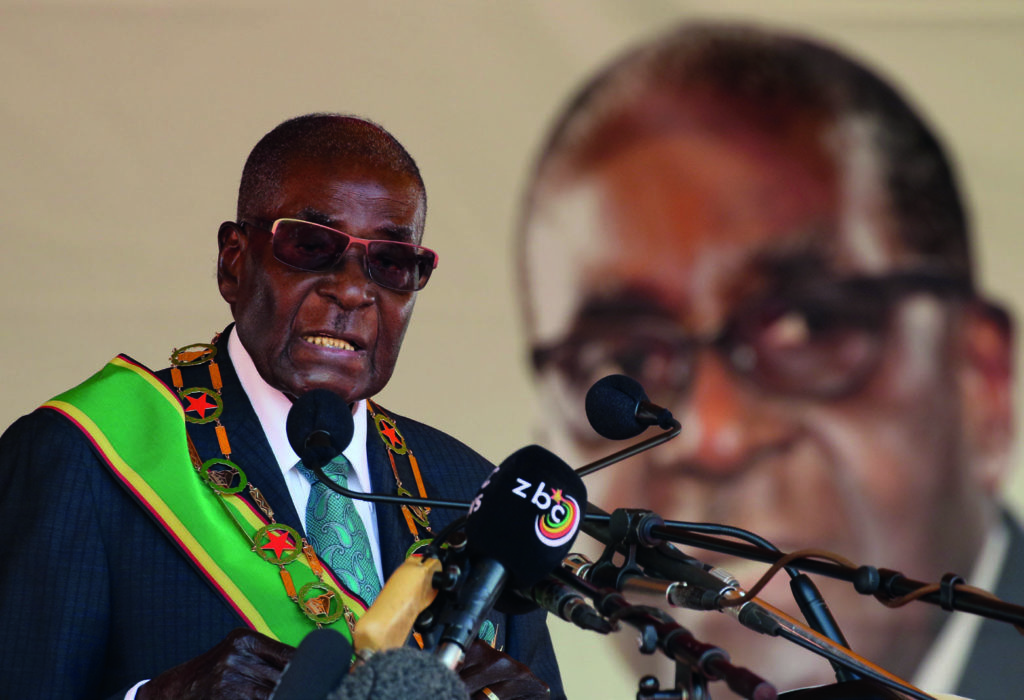
Zimbabwean President Robert Mugabe addresses a rally to mark the country’s 37th independence anniversary in Harare, Zimbabwe, April 18, 2017. REUTERS/Philimon Bulawayo
The Zimbabwean president managed to hold onto power through a pretence of competition through elections
There has been neither peace nor serenity during Robert Mugabe’s 37 years in power. He has been at war in Zimbabwe since its birth. The infrastructure he inherited, better than anywhere else in Africa, is derelict. Every state company is bankrupt and most of Zimbabwe’s best educated citizens left the country.
Slumped in his seat at the World Economic Forum in South Africa recently, Mugabe denied that Zimbabwe was a failed state. He said the country was the second most developed in Africa and that it had resources. But the statistics tell another story.
Educators say even the much-vaunted literacy rate Mugabe claims is an illusion as it was never tested but probably hovers around 60 percent, and falling. Everyone is scared of Mugabe, scared of his world of spies and his violent and partisan security services which keep him in power. Former liberal prime minister of the then Southern Rhodesia, Garfield Todd, said shortly before he died in 2002: “What I cannot forgive is how many people he has corrupted.”
Robert Mugabe is 93 and will fight elections next year. At a state funeral at the end of April he walked carefully and slowly on the red carpet to the national shrine where “heroes” from the colonial era are buried. He delivered a long speech about the man from the Central Intelligence Organisation (CIO) lying in the flag- draped coffin, a “hero” hardly known outside his own secret world.
Mugabe had been in second city Bulawayo the previous day with Namibian president Hein Geingob who opened the annual International Trade Fair which looked more like a flea market than an industrial showcase.
Geingob also went to the shrine, known as “Heroes’ Acre” during his visit. He paid respects at the grave of Mugabe’s first wife, Sally, the first woman buried there in 1992 who died disappointed that two years earlier her husband had a child with his young mistress and now second wife, Grace, from the State House typists’ pool. Sally’s three-year old boy died of malaria in 1966 while her husband was in detention in Rhodesia for 11 years.
Geingob was also taken to former vice president Joshua Nkomo’s grave. Nkomo was the first leader to emerge in the revolt against white-ruled Southern Rhodesia in the 1950’s and was from the minority Ndebele tribe. He was shocked when his Zimbabwe African People’s Union, ZAPU, did not win even a third of the vote in the first democratic elections in 1980.
Mugabe’s Shona tribe was nearly three quarters of the population and his war-time forces regularly used violence during the election campaign. Just weeks after the British flag was lowered in Harare by Prince Charles, Mugabe told British prime minister Margaret Thatcher in London that some of Nkomo’s former fighters were doing “very silly acts” which he said had caused some deaths. Thousands of Nkomo’s supporters were killed on Mugabe’s orders in the two Matabeleland provinces from 1983. Many fled to South Africa and Nkomo fled to London.
In mitigation, as the lawyers would say, some former Rhodesian soldiers operating out of South Africa – and with its protection – hit targets in their old homeland including destruction of much of the national airforce.
More white farmers were killed in this part of the country at this time than during the long bush war.
To end violence against his supporters Nkomo signed up to a “unity” deal with Mugabe in 1987. But the already fragile economy was tight, foreign currency was short, and Mugabe detonated his treasury with an unbudgeted gratuity to 30 000 restless liberation war veterans. He also didn’t consult parliament when he sent the armed forces into the civil war in the Democratic Republic of Congo.
But Mugabe, the shy, withdrawn, lonely boy brought up by his mother and Jesuits from the Catholic Church near his rural home about 80 km west of Harare, had achieved what he wanted, a one-party state, and would brook no opposition.
He was therefore astounded and furious when, 12 years after Nkomo’s surrender, a new political party emerged. The Movement for Democratic Change (MDC) was led by trade unionist, Morgan Tsvangirai who had already felt the whip of detention without trial and State violence. He, a Shona like Mugabe, would go on to be charged with high treason, a regular court date for politicians who opposed Mugabe.
The MDC mostly attracted people from the towns but they all had relatives in rural areas who were curious about the new party but were more vulnerable to Zanu PF’s feudal control of the countryside. Even white farmers, who had concerns about their security on the land, came out politically for the first time since independence and supported Tsvangirai, both financially and practically.
They also encouraged their workers – the largest group in formal employment outside the civil service – to vote for the MDC and its red shirts. The party came within four parliamentary seats of winning its first election in 2000, just nine months after it was born.
Mugabe blamed the West, in particular the UK, which was generous and sympathetic to the MDC even after it was consumed and fatally weakened by internal fights, scandal and idiocy.
But the aftermath of those elections was cruel, not so much in terms of numbers killed compared to when Mugabe destroyed ZAPU, but the never-ending repression and fear. His intelligence sector and political heavyweights hired thugs and penetrated every layer of society: teachers, journalists, artists even medical staff felt the crack of political violence.
The courts choked with bail applications, and torture in police cells was regular and bodies of those killed were often difficult to find in rural areas. Traditional leaders nearly all fell into line with Mugabe’s policy to destroy the MDC.
The arrival of the MDC jerked the land situation into the mess – land was never resolved by the British at the Lancaster House negotiations in 1979 – and Mugabe was always clear that part of why he went to war was to get the land back. Resettlement was skimpy, under-funded, chaotic and the reality was the British were mean about cash to fund it and then cut the money off, citing corruption just before Tony Blair came to power in 1997.
Zanu PF took seven million hectares from about 4000 white farmers who produced 40% of foreign currency which supported about two million workers, wives and their children. Mugabe also gave orders for thousands of small urban homes and businesses, mainly in the MDC’s Harare stronghold to be smashed down, claiming the buildings were illegal. Tens of thousands fled across the border to South Africa.
Alongside the violence, inflation galloped and destroyed the Zimbabwe dollar. Savings, mortgages, insurance policies, pensions, consumer goods, electricity, and fuel disappeared. With a political stalemate and violence after the largely inconclusive 2008 elections, former South African president Thabo Mbeki facilitated an inclusive government heavily weighted in Zanu PF’s favour.
Mugabe had sole control of the military which, like the privileged top ranks of the police and the CIO, had always been part of Zanu PF’s political machinery. He also controlled the justice ministry.
Although Tsvangirai was impotent as prime minister, most MDC ministers did well. With the US dollar as the currency, goods returned to supermarkets, foreign aid helped schools and hospitals re-open. Some roads even got fixed and the MDC-controlled finance ministry kept spending within budget. But by mid 2012 fears about the end of the inclusive government and new elections panicked the population and cash was drained from the banks.
The divided and quarrelling MDC was also short of cash and lost support as its main movers and shakers were consumed by demands of the inclusive government. Zanu PF ran a catchy, colourful campaign, and Mugabe promised two million jobs and “indigenisation” of most factories and mines.
Mugabe and Zanu PF won massive victories in both presidential and parliamentary elections, and there was cheating as the polls were supervised by the partisan electoral authority. There was no electronic voters roll available to check allegations of irregular voter registration, and the hard copy was only available the night before people went to the polls. Tens of thousands of unregistered voters went to the polls with temporary registration slips and tens of thousands of registered voters were turned away.
“Mugabe won elections by manipulating rural votes, for years. We have a pretence of competition for power through elections but in reality only one party, (Zanu PF) can win,” said Derek Matyszak who monitored most recent elections.
Imports vastly overwhelmed export revenue and so cash was short and finally John Mangudya, the less political central bank governor, created a small amount of a new currency which he called Bond Notes. This cash had almost run out by April 2017, six months after it was launched.
But good rains last season mean Zimbabwe has grown enough to feed itself for the first time in more than a decade. And it seems it has finally managed to borrow enough cash via “medium term” loans at “reasonable interest”, according to Mangudya, probably from western banks to pay off significant debts to allow it to fully engage with the International Monetary Fund.
Mugabe survives because he is an expert at gaining and maintaining power, says David Moore, Zimbabwe historian and professor of Development Studies at the University of Johannesburg. “He has been able to balance ethnic and ideological pressures quite well even during extraordinary circumstances and crises, financial and political … however, these moves do not necessarily equate to good economic policies.”
Brian Raftopoulos, a senior academic and political analyst, says Mugabe’s main legacy, despite the pain of it, was the takeover of white-owned land. “This was the biggest (land grab) on the continent. He has massively expanded (activity) in the rural areas. Of course he has treated his own people with disregard and with an authoritarian hand.”
PETA THORNYCROFT was a journalist at most mainstream South African daily and weekly newspapers and produced and edited TV and radio documentaries for several UK, Dutch and US television companies. At present, she covers Zimbabwe for the Daily Telegraph and Independent Newspapers.

